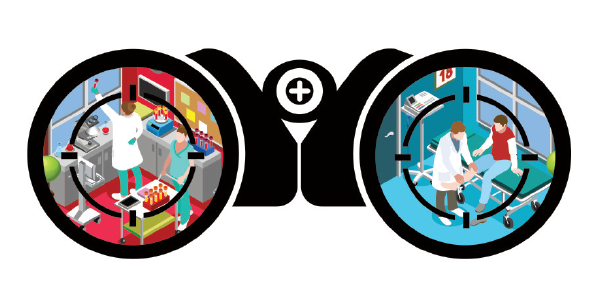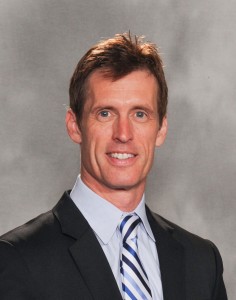
Part of ACEP’s power as an advocate for emergency medicine comes from the strength and cooperation of its leaders. Last month, we interviewed ACEP President Jay A. Kaplan, MD, FACEP, about the challenges and opportunities ahead for emergency medicine. This month, Rebecca Parker, MD, FACEP, who was elected ACEP President-Elect in October 2015, shares her views on the key issues facing emergency medicine with ACEP Now Medical Editor-in-Chief Kevin Klauer, DO, EJD, FACEP.
Explore This Issue
ACEP Now: Vol 35 – No 04 – April 2016KK: What do you think are the greatest challenges facing emergency physicians today?
RP: I think there are a couple of things. One is the implementation of PPACA, also known as the Affordable Care Act (ACA), and how that is going to impact emergency medicine. I think the ACA is also an opportunity for us to look at our current practice setting and where the opportunities are to improve it. I think that’s the second challenge for us. It’s harder and harder every day to be in the emergency department, and we are faced with fights and battles every single day. How can we use the challenge of the ACA as an opportunity to make our daily lives more enjoyable? It goes back to the joy of the practice instead of feeling like we’re in a battle every day we go to work.
KK: What are your top goals for your presidency?
RP: My Council speech included two goals. The first one was to focus on emergency medicine becoming the nucleus of the acute care continuum. This includes continuing the work of the quality registry that has been started with the Clinical Emergency Data Registry; looking at how we can get financial data together to fight payers and their bad behavior, including how the insurance companies have been attacking us; looking at workforce issues; and looking at what a “physician-led team” means. Further on workforce, we’re looking at graduate medical education and really being aggressive on that front. Graduates are starting to not have residency slots, and that is not acceptable. Finally, we’re looking at wellness. We need to take care of ourselves. With the number of suicides we hear about and the number of people that have had tremendous pain in their lives, we need to support each other, value each member, and help people in their wellness journey.
The second piece of the puzzle is diversity. We’re really more diverse than we’ve ever been. What does diversity mean from generational, gender, race, religion, LGBT, and geography standpoints? We need to pause, step back, and say, “How can we best support all of those different kinds of people?” We are hosting a diversity summit on April 14 to kick this off. We’ve invited about 20 emergency physicians from all different walks of life, many of whom have studied this or published on the topic within their vantage point. I think this is an opportunity for emergency medicine to lead the entire field and house of medicine.
KK: I think it’s wonderful. Most should recognize that this is a serious and important issue. I think this is the right time, the right president, the right organization, and the right charge.
RP: Thanks, Kevin.

Dr. Parker speaking at the American Association of Women Emergency Physicians meeting at ACEP15
KK: What are your views on group democracy, particularly knowing that your career path has been to not work with a democratic group?
RP: That’s actually a false statement. I don’t know if you know that or not. I will tell you my story. I think that the term “democratic group” is a misnomer. Democracy is where people are voting on every single issue, and that is very hard to do in business. What I think we actually have are partnerships, like our legal colleagues have. You have people come up the chain to become partner. There are senior partners. There is a managing partner. That’s the only way you can function in terms of governance and in terms of running a business. In the end when you look at democratic groups, what we really have are partnership groups. When you look at our groups, we have small, medium, and large groups. Then we have our multispecialty groups. They are multispecialty by design and not just hospital-based but outside of the hospital as well.
I actually have experience with a democratic group. I’ve really been interested in group formation since I was a resident. My first project on the EM practice committee was as a co-author of a paper on how to start a democratic group. I was two or three years out of residency, so I was a junior person on that paper. I learned quite a bit and contributed quite a bit as well. I had the opportunity to start a democratic group about 10 years ago when two hospitals here in the Chicago area were merging together. We wanted to start a new democratic group, we invited all of the physicians to join, and three physicians took up that option. I went through the whole process of taking out a loan and putting up my personal credit. My home was on the line of credit. What I would say about that experience is when you go into that type of group, it’s a marriage. It’s an intimate relationship, and it has that type of emotional connection. It takes the hard work that a marriage takes. In the end, the group did fail. I’ve worked for a single contract holder. I’ve worked for a regional group. I’ve worked as a hospital employee; that’s actually my moonlighting job right now. I’ve worked at a Veterans Affairs hospital, and I’ve worked in academics. Right now, I work for a large national group. I have a gamut of experience, and in each of those different areas, I was part of the business side. I think in my role as president that brings a lot of value.
I actually have experience with a democratic group. I’ve really been interested in group formation since I was a resident. My first project on the EM practice committee was as a co-author of a paper on how to start a democratic group. I was two or three years out of residency, so I was a junior person on that paper.
KK: There’s no reward without risk.
RP: Correct. My goal as President is to fight for all forms of practice so that in five years, when the dust settles, people have a choice on where they practice based on what’s right for them.
KK: Along those same lines of group democracy, what would you say for those who don’t know you well and would question how a physician from a large contract management group would be best suited to be the president of ACEP?
RP: They need to look at me as a person, and as I described, my practice setting has varied. As a person, I am a good choice because of those experiences. This is not the only type of group I’ve ever worked for. First of all, it comes down to the person.
KK: For those who are not aware of the need for an office building, how would you explain that to them?
RP: I think you start at how old our current building is. Really, it was built 40 years ago. We’ve been there a long time, and the size of the College is tremendously larger. We actually had to move our financial department to another building because they have no room in the building for them. We have outgrown our space. When we went through the process of figuring out what we need to do to enhance that space, we asked the team to investigate if we could expand and build onto the building we have now. We thought we could lease space where we have everyone together, and that was financially not the best option either. The good thing is that when we bought our property and started the process, we bought the property fairly early on. It’s actually already increased in value; it’s been a good investment. The portion of money that we put into the down payment was taken out of our savings. There was no dues increase; it was actually money we’d saved over time, and a good proportion of that will be dues money that’s been saved up along with money from the Scientific Assembly, investments, etc. We financed the other portion of that so it’s not all coming out of our reserves. I think in the end, it’s going to set us up for the next 40 years. It’s supposed to open in September, and we’re going to be able to invite some of the original founders who put together the original building. Most of them are still alive, so that will be pretty neat.
KK: On a lighter note, what is your best ACEP memory while serving on the Board so far?
RP: That’s a great question. One of the moments was being the first woman to have a baby while on the Board. The Board was very supportive. About two weeks before Jacob was born, they let me Skype into the Board meeting at the end of June. I was so pregnant, 37 weeks, and so I couldn’t travel to Dallas. They essentially set up the computer like I was at the table. If I wanted to say something, I had to raise my hand, and they had me plugged into the overhead. They took care of me.
KK: Were there any contentious discussions that resulted in a few contractions for you?
RP: No, although I did deliver a week later.
Pages: 1 2 3 4 | Multi-Page






No Responses to “ACEP President-Elect Dr. Rebecca Parker Shares Views on Issues Facing Emergency Medicine”